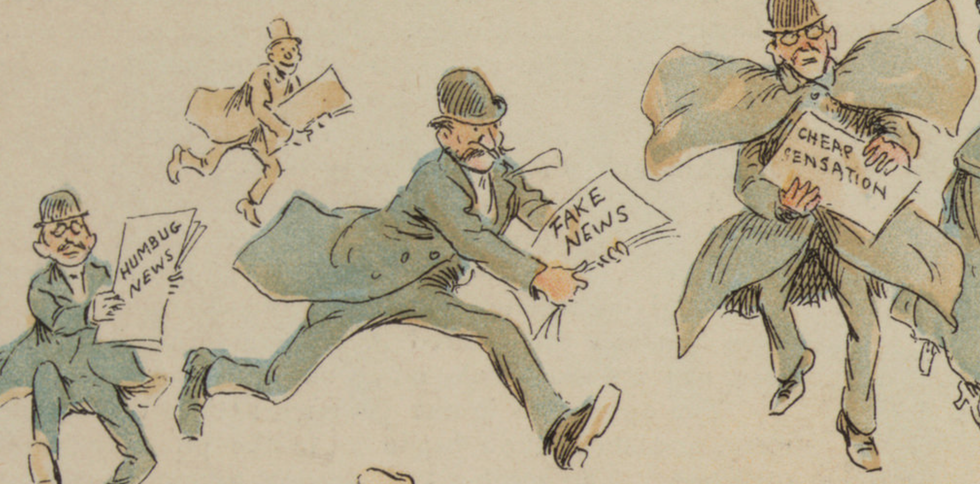Fake news has almost become a political buzzword — but in reality, it is a journalism and media problem that is lead and directed by the public and platforms of sharing.
One of the nation’s leading experts in political communication and news coverage traveled to Indiana University on Tuesday to speak to students and community members about political and viral deception, otherwise known as the “fake news” phenomenon. Professor of Communication at the Annenberg School for Communication at the University of Pennsylvania Kathleen Hall Jamieson has traveled to universities across the country to urge audiences to reject the concept of fake news.
Jamieson first used examples to prove that fake news is a problem and show how destructive it can be to society. She used an example of a video that was released in 1990 of the daughter of the Kuwaiti Ambassador falsely testifying against Saddam Hussein. When this video went viral, it mobilized national action and helped propel the United States into war against Iraq in the early '90s. This immediately got the audience's reaction, many of whom were already realizing the huge impact that viral fake news can have.
Other dangers that Jamieson noted were that fake news can mislead the electoral about policy, as it did in the case of Obama’s broadcasted incorrect information about the Affordable Care Act, and that it can impugn character, like when Daily Mail falsely claimed that Melania Trump was an escort.
Jamieson also urges the audience to consider the definition of the buzzword, “fake news,” which has been a term coined by Donald Trump during the election when referring to mainstream media today. She rejects the term “fake news” and instead urges the audience to use the term “viral deception.”
She said, “I want you to move from the motion of fake news because news has a positive connotation, to the disease of VD, or Viral Deception.” The audience erupted into laughter at her comparison of fake news to a very unwanted disease.
It is clear throughout her speech that Jamison used examples of viral deception on all sides of the political spectrum. She urges the audience to also look for misinformation on their side of an issue, which can be hard to do because studies have shown that we are prone to accept information consistent with existing beliefs.
The most important strategy that Jamison emphasizes when it comes to debunking viral deception is to stop it before circulation. She emphasized Facebook’s work in this effort. Facebook works to fact check articles and inform readers before they share the articles containing false information.
Jamieson said, “They [Facebook] are not outright killing the content; they are reducing it to the feed.” She says this is the key to debunking viral deception long term.
A senior in the Kelley School of Business, Bryce Rickman said, “From a business point of view, I think it is interesting that businesses like Facebook are doing a journalist’s job and fact-checking articles on their platform. I think it’s more purposeful in the sense of loyalty to its customers to prevent them from sharing false information,” after listening to Jamieson’s lecture.
About 270 Indiana University students, professors, and community members attended her speech at the Presidents Hall for the Patten Foundation lecture series. Jamieson urges the journalism professors and students in the audience to try to teach strategies and good practices to ultimately eradicate viral deception and to create a more informed public that can distinguish what news is reliable.
She said, “The ultimate protection against this issue is all of us in the education field.”



















